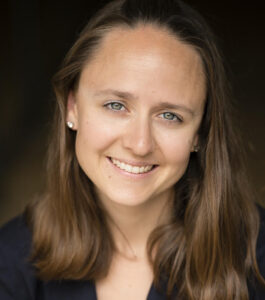 Genoa Warner, Ph.D., an Assistant Professor in the Department of Chemistry and Environmental Science at the New Jersey Institute of Technology, is the 2022 winner of the Lou Guillette, Jr. Outstanding Young Investigator award. This award comes with a $5000 honorarium and a recycled glass plaque.
Genoa Warner, Ph.D., an Assistant Professor in the Department of Chemistry and Environmental Science at the New Jersey Institute of Technology, is the 2022 winner of the Lou Guillette, Jr. Outstanding Young Investigator award. This award comes with a $5000 honorarium and a recycled glass plaque.
The award, in honor of Lou Guillette, Jr., is given to an early-career scientist working in some aspect of endocrine disruptor research. Someone who is recognized as a creative, dedicated scientist who at an early stage of their career is already having an impact on human health and who has a special love of and dedication to mentoring. Someone who, like Lou Guillette, Jr., is a good communicator and who is willing to go beyond to help trainees succeed.
Dr. Warner received her Ph.D. in Chemistry in 2017 from Carnegie Mellon University with Dr. Terrence Collins, and then completed her postdoctoral training in Dr. Jodi Flaws’ laboratory in the Department of Comparative Biosciences at the University of Illinois at Urbana-Champaign.
Her lab at NJIT, the Endocrine Disruption and Chemical Biology Lab (EDC Lab), seeks to study the mechanisms of action of endocrine disrupting chemicals using chemistry techniques while addressing major problems in chemical sustainability including mixtures, emerging contaminants, and regrettable replacements with the goal of providing toxicological insights for safer chemical design. Her lab represents a new model for combining chemistry and endocrine disruption science. Her research is funded by an R00 from NIEHS, startup from NJIT, and a Faculty Seed Grant from NJIT. She is currently working on phthalates, phthalate replacements, nano-plastics, and artificial turf.
Dr. Warner is also an outstanding mentor. The letters we received from her mentees will bring you to tears. She hosts a diverse and productive set of undergraduate and graduate students in her lab.
We at HEEDS congratulate Dr. Warner for becoming the 2022 award winner. We also note the outstanding early-stage scientists who were nominated for the award. There were a number of very well qualified applicants this year! Dr. Warner and all the nominated scientists indicate the field of endocrine disruption has a bright future.
